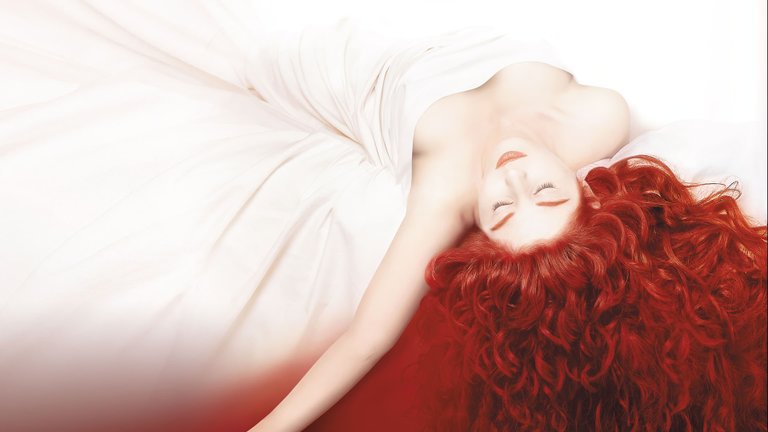Film Review: Perfume: The Story of a Murderer (2006)

The task of transferring great literature to the big screen is one that often eludes film makers, with some challenges being greater than others. A prime example can be found in Patrick Süskind's celebrated 1985 novel, Perfume: The Story of a Murderer. When approached with offers for film rights, Süskind was initially reluctant, stating that only the most talented directors like Stanley Kubrick or Miloš Forman could properly adapt his work. Following Kubrick's death in 1999, however, Süskind finally relented, and the task was ultimately given to German director Tom Tykwer. His 2006 adaptation is remembered as one of the more interesting and ambitious European films at the time.
The plot is set in 18th Century France and begins with Jean-Baptiste Grenouille (played by Ben Whishaw) awaiting trial and execution for a series of murders. Through flashbacks, we see what ultimately brought him to this point, starting with his birth and abandonment by his mother at a Parisian fish market. Grenouille survives and is sent to an orphanage where he grows up as a boy with almost superhuman sense of smell. This ability makes him obsessed with various scents, including that belonging to a red-headed girl selling plums (played by Karoline Herfurth), whom he accidentally kills in his quest to enjoy her fragrance as much as possible.
An accidental encounter with Giuseppe Baldini (played by Dustin Hoffman), owner of the perfume shop, leads to a partnership during which young Grenouille uses his ability to provide old Baldini with new fragrances. In exchange, Grenouille receives mentoring in various techniques of extracting and preserving scents. One of these methods is developed in the southern town of Grasse, where Grenouille goes to study it. He becomes obsessed with the scent of Laure Richis (played by Rachel Hurd-Wood), the beautiful daughter of wealthy Antoine Richis (played by Alan Rickman). Determined to capture her scent, Grenouille decides to kill her. Before doing so, he tests his techniques on a number of young women in the vicinity, causing the town to search for the mysterious and relentless killer.
It is hardly surprising that Kubrick was author’s favourite choice to direct the film, as this dark tale about a murderous sociopath seems well-aligned with the director's notorious misanthropy. Tom Tykwer, who had large shoes to fill, bravely approached this challenge, helped not only by his ability to alternate between different genres and styles in his filmography but also by the large budget at his disposal, which made Perfume one of the most expensive films in the history of German cinema by that point.
Due to the setting and use of narrator, there would be obvious and almost inevitable comparisons with Kubrick’s Barry Lyndon. However, Tykwer wisely decided to apply his very own style to this adaptation. This was, in many ways, forced by the unique challenge of bringing Süskind's content to the screen. Scents, which play a crucial role in the film's plot, can be left to viewers' imagination due to the specific nature of both media. Tykwer, however, tries to capture their essence through specific visuals, using cinematography by Frank Griebe to create impressive images that often play with various color schemes. The result gives a sharp contrast between the immense beauty presented on the screen and the morally reprehensible actions of the protagonist.
Tykwer, however, had somewhat less luck with casting. Ben Whishaw is a talented actor, but the complicated and challenging role of a character who is both genius and monster is compromised by Tykwer’s decision to portray him as someone with outwardly ordinary appearance while his actions make him someone audience can’t root for. Dustin Hoffman, who obviously enjoys playing a character that is closest to comic relief, has the misfortune of having his character depart the film too soon.
The biggest issue of the film is the tonal shift between the impressive first part, when we are introduced to the main character and his perverse obsession, and the second part which looks like an 18th Century version of a slasher film. The suspense is often eliminated at the start, and the fate of characters becomes quite predictable. In that segment, the film often looks repetitive, has serious pacing problems, and even the unconventional fantasy-like finale loses much of its impact, with Tykwer not helping his cause with some ill-advised quasi-religious allegories. This includes even the mass public orgy scene that loses much of its shock value.
The ultimate result is a well-made, unconventional, but ultimately underwhelming period piece that most viewers would not be in a hurry to watch the second time. Süskind's novel was later adapted twice – as 2018 television miniseries Perfume and as 2021 streaming film Perfumier – both having their plot set in modern times.
RATING: 6/10 (++)
Blog in Croatian https://draxblog.com Blog in English https://draxreview.wordpress.com/ InLeo blog https://inleo.io/@drax.leoHiveonboard: https://hiveonboard.com?ref=drax
Rising Star game: https://www.risingstargame.com?referrer=drax
1Inch: https://1inch.exchange/#/r/0x83823d8CCB74F828148258BB4457642124b1328e
BTC donations: 1EWxiMiP6iiG9rger3NuUSd6HByaxQWafG
ETH donations: 0xB305F144323b99e6f8b1d66f5D7DE78B498C32A7
BCH donations: qpvxw0jax79lhmvlgcldkzpqanf03r9cjv8y6gtmk9
Posted Using InLeo Alpha